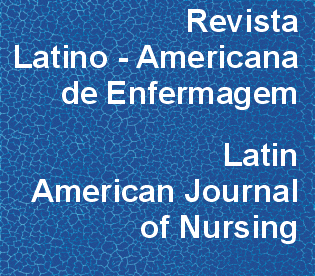Factores relacionados al no presentarse a la consulta para recibir el resultado de la prueba de Papanicolaou
DOI:
https://doi.org/10.1590/0104-1169.3132.2430Abstract
OBJECTIVE: to identify the factors related to the failure of women to attend the follow-up consultation to receive the results of the Pap smear test. METHOD: a cross-sectional study, carried out with 775 patients who underwent the Pap smear test in the Centro de Saúde da Família of Fortaleza, between September 2010 and February 2011. RESULTS: the majority of the women studied were young (≤35 years), had low levels of education (≤7 years of study), and commenced sexual activity early (≤20 years), with 17.0% of them failing to return to receive the test results. Statistically significant results for the failure to return were related to: young women (p=0.001); early onset of sexual activity (p=0.047); and inadequate knowledge about the Pap smear test (p=0.029). Conclusion the fact that the women failed to return for the result is a problem for the control of cervical cancer and must be addressed through educational strategies that reinforce the importance of the return for the early detection of this cancer.Downloads
Download data is not yet available.
Downloads
Published
2014-06-01
Issue
Section
Original Articles
License
RLAE’s authorship concept is based on the substantial contribution by each of the individuals listed as authors, mainly in terms of conceiving and planning the research project, collecting or analyzing and interpreting data, writing and critical review. Indication of authors’ names under the article title is limited to six. If more, authors are listed on the online submission form under Acknowledgements. The possibility of including more than six authors will only be examined on multicenter studies, considering the explanations presented by the authors.Including names of authors whose contribution does not fit into the above criteria cannot be justified. Those names can be included in the Acknowledgements section.
Authors are fully responsible for the concepts disseminated in their manuscripts, which do not necessarily reflect the editors’ and editorial board’s opinion.
How to Cite
Factores relacionados al no presentarse a la consulta para recibir el resultado de la prueba de Papanicolaou . (2014). Revista Latino-Americana De Enfermagem, 22(3), 401-407. https://doi.org/10.1590/0104-1169.3132.2430



